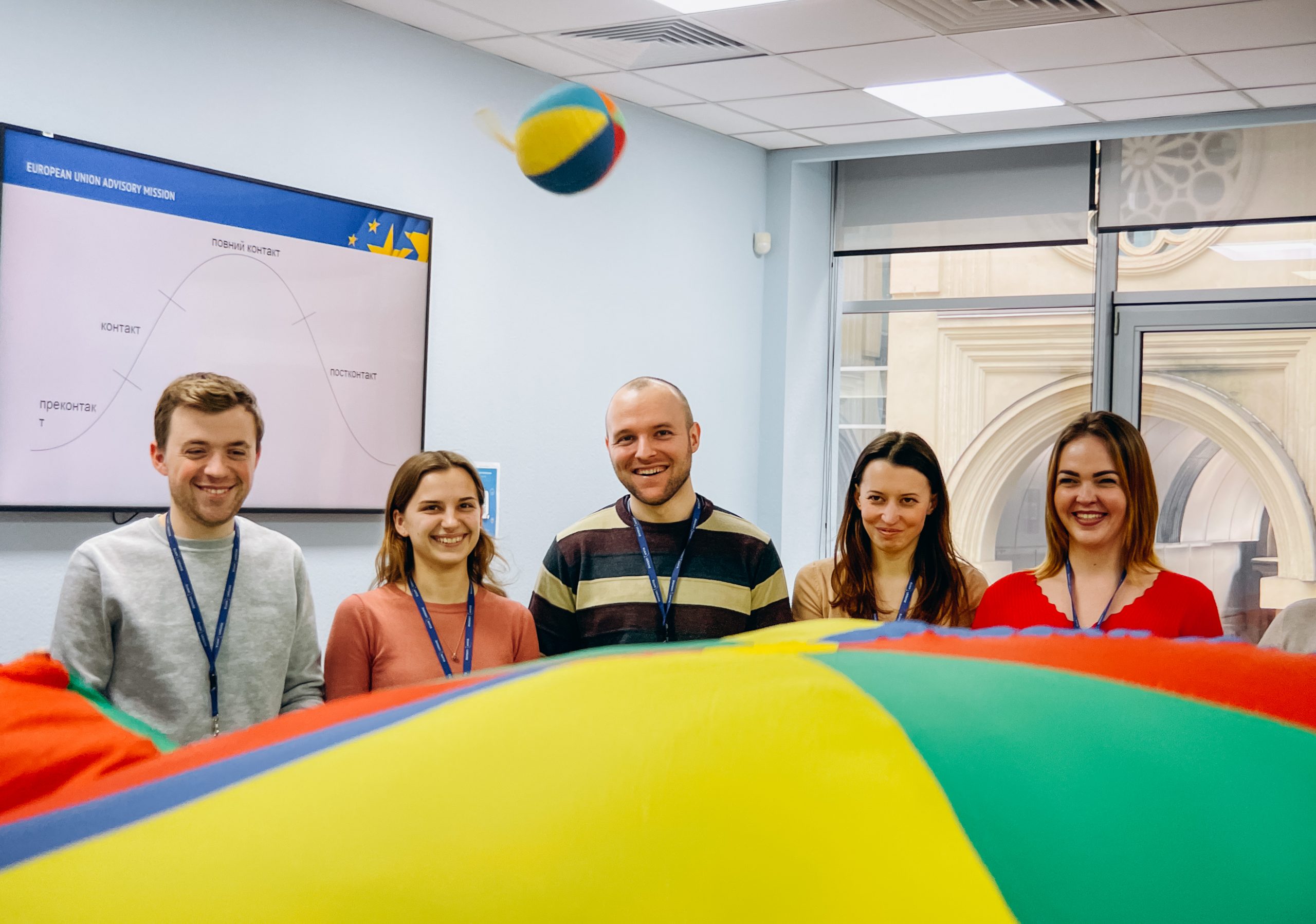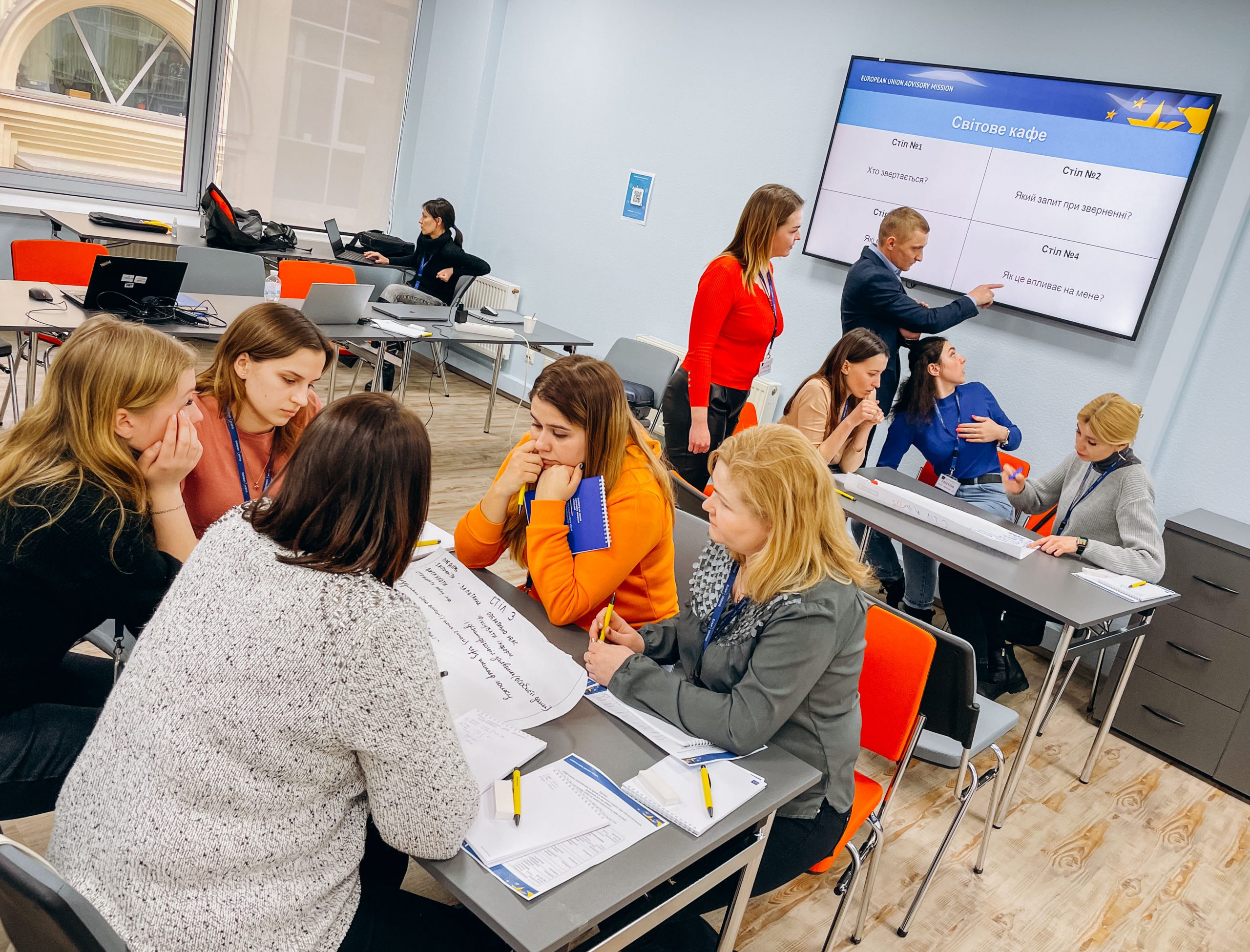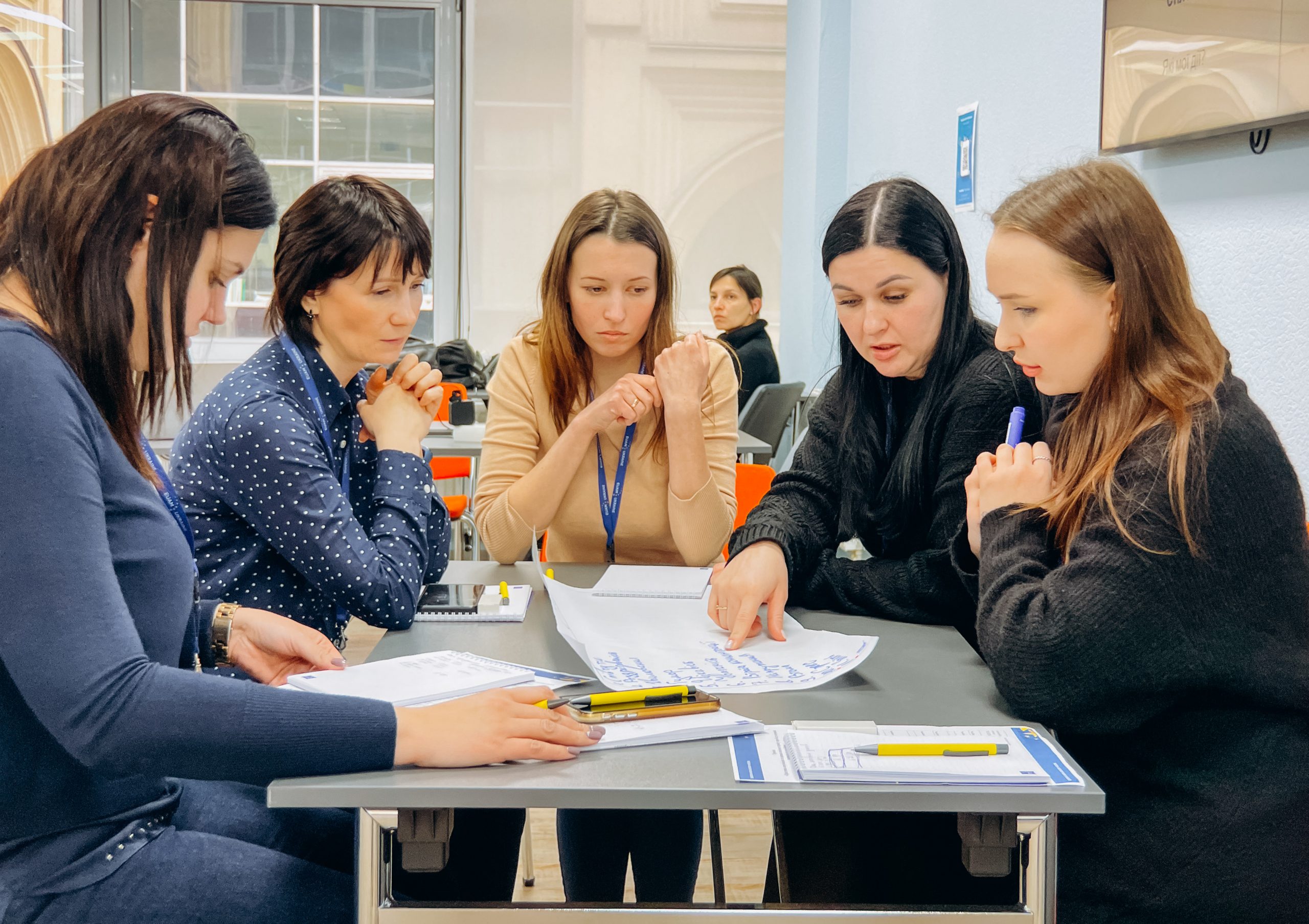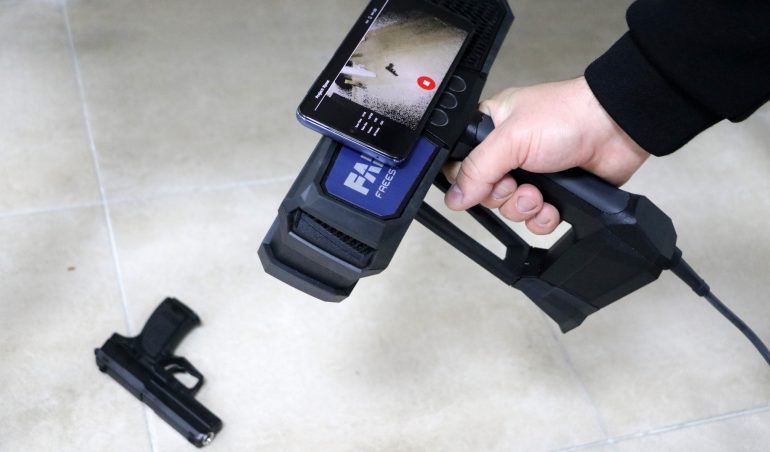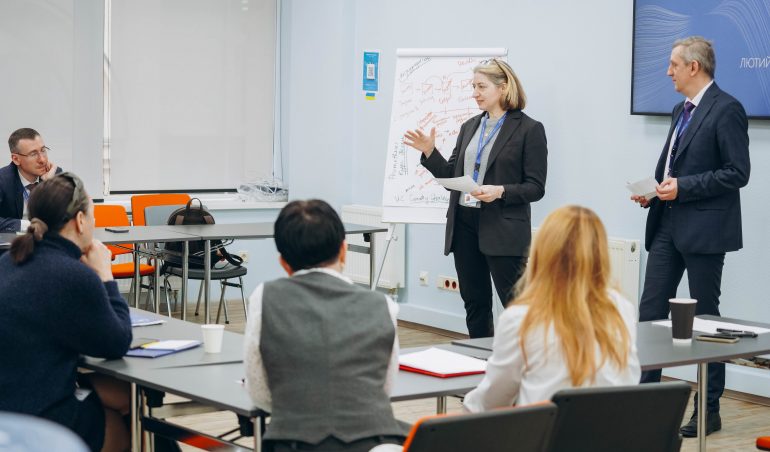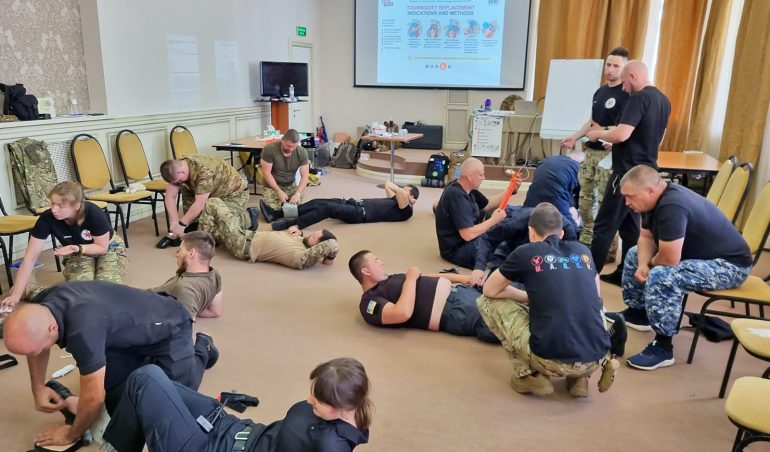“102” line operators learn new auxiliary methods to be more effective at work
February 27, 2023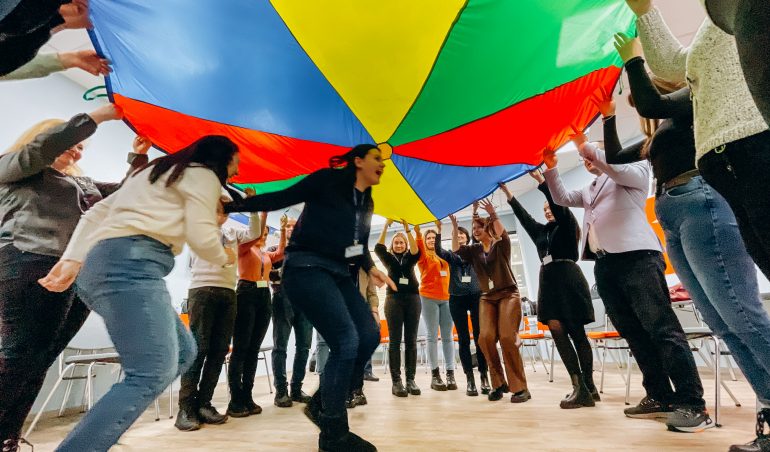
Last week, the EU Advisory Mission Ukraine (EUAM) conducted two one-day training sessions on effective communication of police service during war time. 40 police “102” line operators and officers of dispatch centres joined the session. The activity was part of a larger project of EUAM, dedicated to Post-War and Transition Phase Support, aiming to improve the skills, knowledge and resilience of police services of Ukraine.
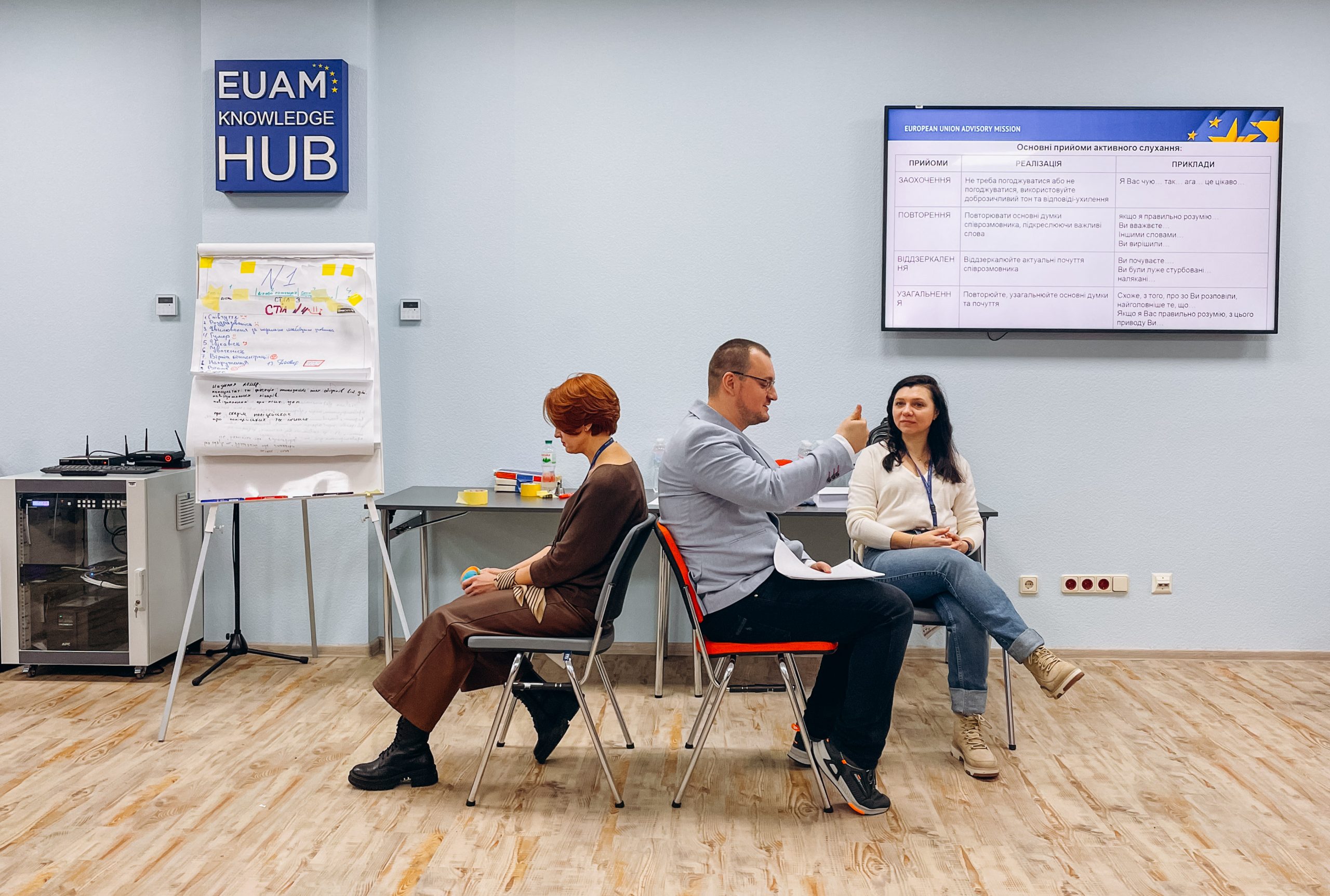
At the training, participants learned how, over the telephone, to identify people who experienced violence, and persons in acute stress. A special part of the session was dedicated to discussing professional burnout, compassion fatigue, vicarious injury and their prevention. In this regard, participants were taught the principles of resilience in the face of trauma.
Each day, “102” line operators receive up to 20,000 calls. The “102” operator is the first point of contact for a person in distress. Thus, the possibility to provide help, maybe even saving a life, depends on the efficiency and professionalism of the operator. To fulfil such challenging tasks, operators must not only possess the necessary set of skills but also be emotionally stable, to ensure effective communication.
“We are aware of the level of pressure on the “102” service and direct exposure to traumatic events. We know that police officers continue to work during hostilities, missile strikes, and air raids. That’s why EUAM provides support to the staff of the National police so that the people remain efficient despite high stress,” said Anamaria Fuduli, the EUAM Head of Human Resources Reform Development Unit.
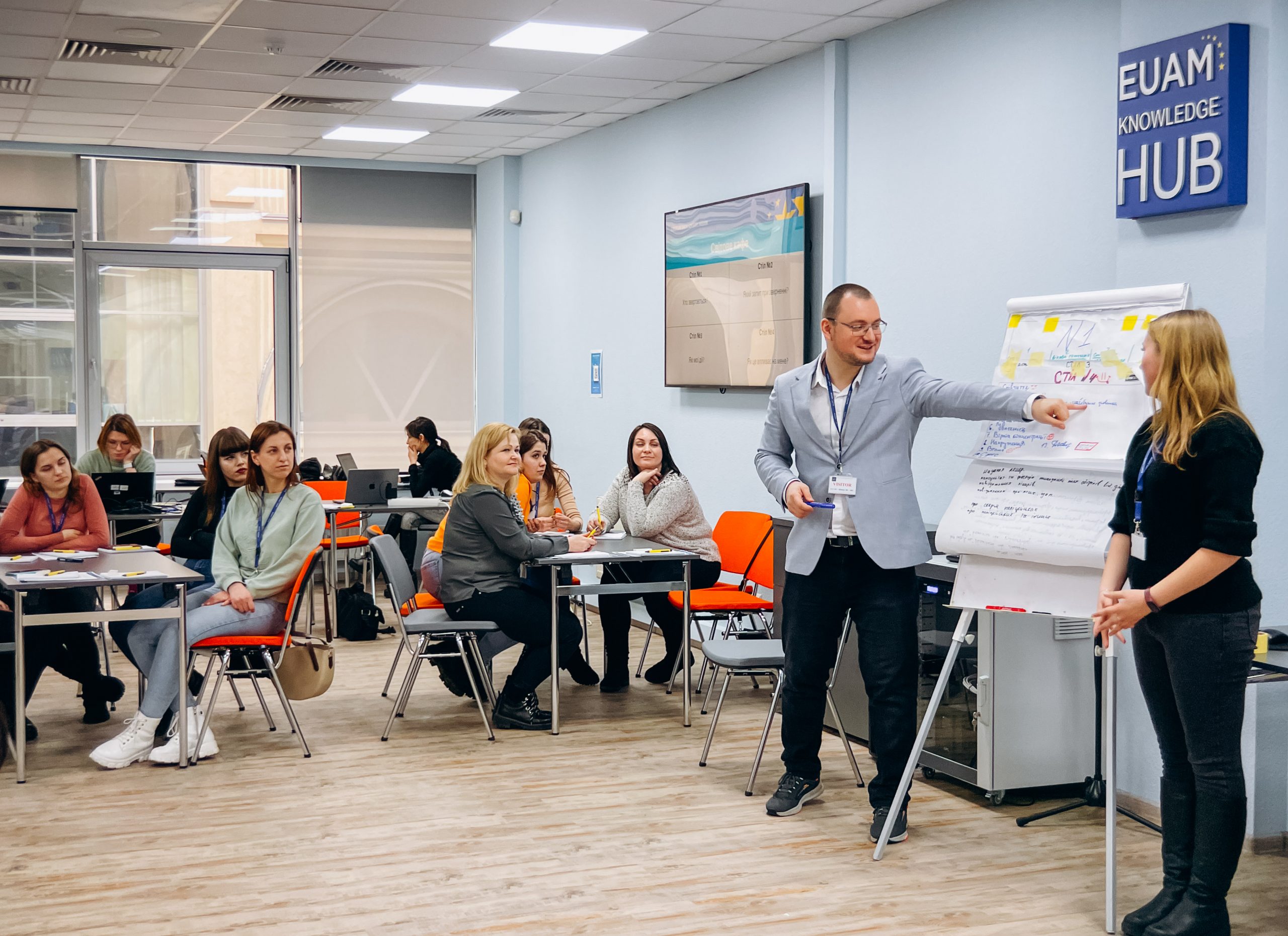
WHY THE TRAINING IS IMPORTANT
We asked our participants and the trainer about the importance and necessity of conducting such training, especially during war time.
Yevhen Likarchuk, trainer on crisis communication
– Why do we need to conduct such training?
– If we consider communication as an iceberg, then at the top we will see the collection of information, and under the water, there is a large accumulation of various emotions, including compassion fatigue. Due to constant tension, the operator experiences emotional burnout from speaking with people, listening to their stories and feeling their grief. This kind of training helps the participants to comprehend what is happening to them. They understand better how they can help themselves, in what way, to learn about auxiliary methods of responding to their emotions. The goal is for them to be able to share their emotions, rather than keeping them to themselves.
– So, such trainings also aim to provide psychological support to the participants?
– Yes, this training can help the participants to learn how to look after themselves, their health and prevent burnout. They also learn that this job is not their centre of life. It can also give a person the opportunity to make important changes in their life. One day of training is the minimum, to get these messages across.
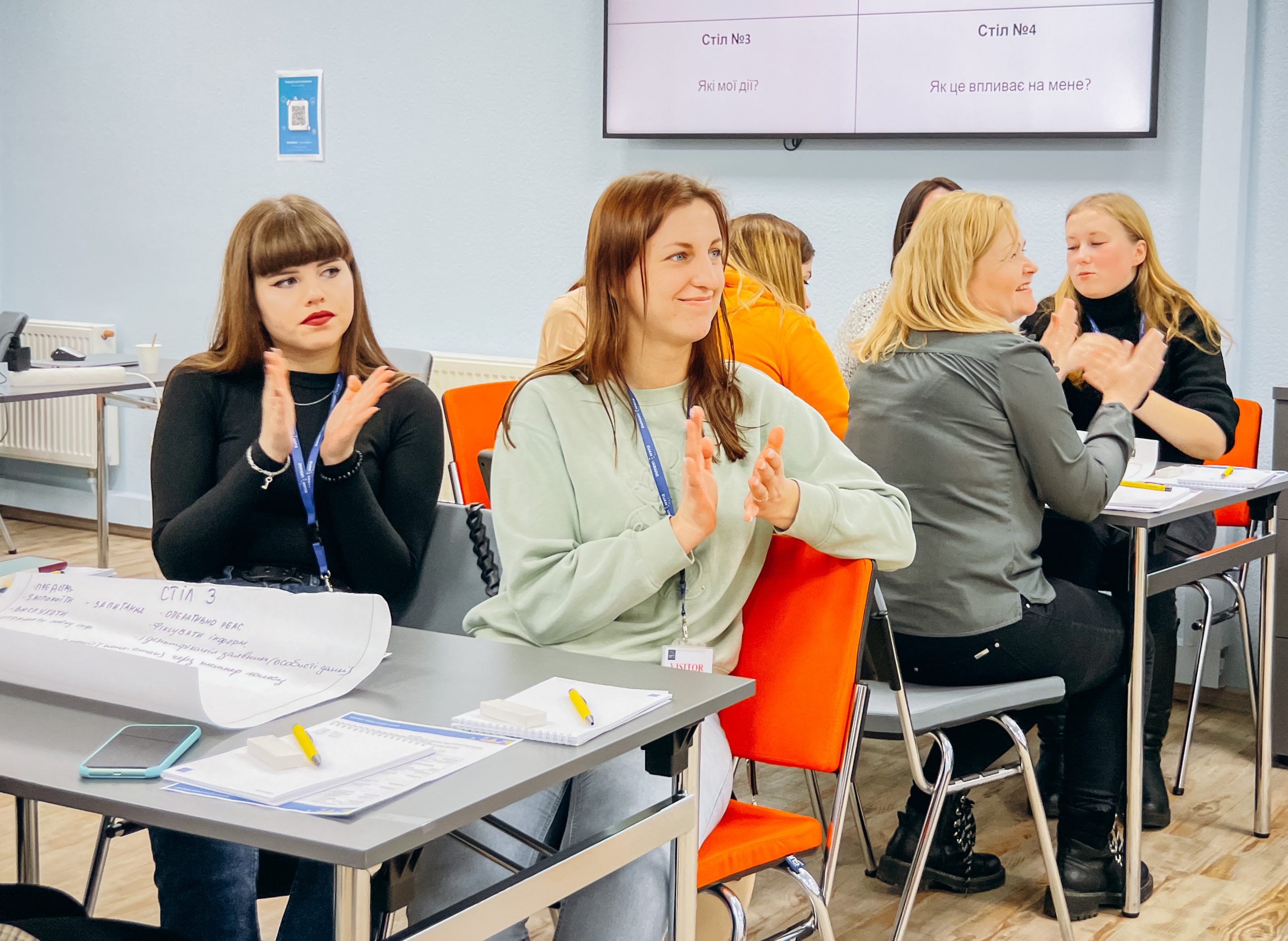
Olena, training participant
– How useful is this training for operators of the “102” line?
– Such a training is primarily an improvement of the qualifications of our operators, which ultimately ensures higher efficiency.
– How does such increased efficiency manifest?
– People are in different emotional states when they contact the “102” line. An operator must find the right approach to each person in order to gather the maximum information in a short period of time. After such a training, the operators are able to receive messages more effectively. They provide more accurate information to the dispatchers, who determine which police unit to send to a scene and whether it is necessary to involve someone else.

Ihor, training participant
– How long have you been working as an operator of the “102” line?
– About 10 years.
– Based on your experience, how useful are such trainings for the operators?
– This is very important for our service. The emotional state of the operators affects everything: both the quality of work and private life. People tend to bring their emotions home from work. Such trainings are useful for ensuring the professional development of our operators, because such trainings provide auxiliary knowledge and tools for correct response and correct reception of calls.


